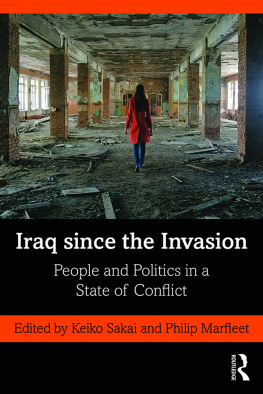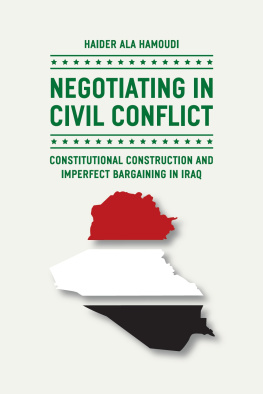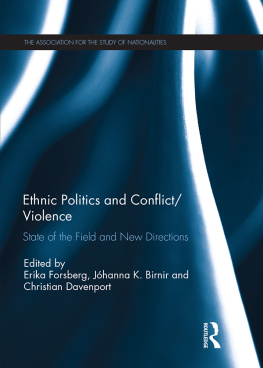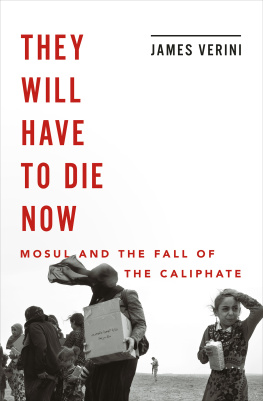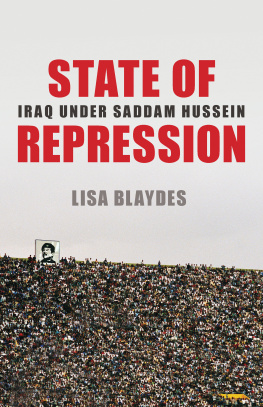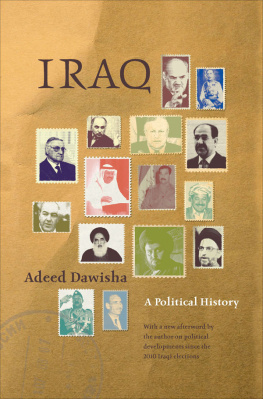Iraq since the Invasion
This book addresses the complex events and unexpected outcomes of military intervention by the United States and its allies in Iraq in 2003. Considering the long-term outcomes of the intervention, this volume examines economic collapse, societal disorder, and increased regional conflict in Iraq.
The book assesses the means by which American strategists imposed a new political order, generalising corruption, sectarian preference, and ethnic cleansing, and stimulating mass population movements in and from Iraq. Mobilising a multidisciplinary perspective, the book explores the rise and fall of Iraqs confessional leaders, the emergence of a popular movement for reform, and the demands of young radicals focused upon revolutionary change. The product of years of intensive research by Iraqis and international scholars, Iraq since the Invasion considers how an initiative designed to produce regime change favourable to the United States and its allies brought unprecedented influence for Iranboth in Iraq and the wider Gulf region. It analyses events in Kurdistan and the impacts of change on relations between Iraq and its neighbours.
The book includes a wealth of detail on political, social, and cultural change, and on the experiences of Iraqis during long years of upheaval. It will be of value to researchers and students interested in international relations, development studies, and Middle East politics.
Keiko Sakai is a professor and dean of the Center for Relational Studies on Global Crises, Chiba University. She has research experiences in the Institute of Developing Economies and Embassy of Japan in Baghdad. She has published several books on Iraq and Middle East politics (mainly in Japanese).
Philip Marfleet is an emeritus professor in Social Sciences at the University of East London. He has worked at universities in the Middle East and the UK. His books include Refugees in a Global Era (2006), Egypt: The Moment of Change (2009), and Egypt: Contested Revolution (2016).
First published 2020
by Routledge
2 Park Square, Milton Park, Abingdon, Oxon OX14 4RN
and by Routledge
52 Vanderbilt Avenue, New York, NY 10017
Routledge is an imprint of the Taylor & Francis Group, an informa business
2020 selection and editorial matter, Keiko Sakai and Philip Marfleet individual chapters, the contributors
The right of Keiko Sakai and Philip Marfleet to be identified as the authors of the editorial material, and of the authors for their individual chapters, has been asserted in accordance with sections 77 and 78 of the Copyright, Designs and Patents Act 1988.
All rights reserved. No part of this book may be reprinted or reproduced or utilised in any form or by any electronic, mechanical, or other means, now known or hereafter invented, including photocopying and recording, or in any information storage or retrieval system, without permission in writing from the publishers.
Trademark notice: Product or corporate names may be trademarks or registered trademarks, and are used only for identification and explanation without intent to infringe.
British Library Cataloguing-in-Publication Data
A catalogue record for this book is available from the British Library
Library of Congress Cataloging-in-Publication Data
Names: Sakai, Keiko, 1959- editor. | Marfleet, Philip, 1948- editor.
Title: Iraq since the invasion : people and politics in a state of conflict / edited by Keiko Sakai and Philip Marfleet.
Description: Abingdon, Oxon : New York, NY : Routledge, 2020. | Includes bibliographical references and index.
Identifiers: LCCN 2020007165 (print) | LCCN 2020007166 (ebook) | ISBN 9780367193683 (hardback) | ISBN 9780367193690 (paperback) | ISBN 9780429201936 (ebook) | ISBN 9780429510601 (adobe pdf) | ISBN 9780429514036 (epub) | ISBN 9780429517464 (mobi)
Subjects: LCSH: Islamic sects--Iraq. | Sunnites--Relations--Shah. | Shah--Relations--Sunnites. | Ethnic conflict--Iraq. | Kurds--IraqPolitics and government--21st century. | Forced migration--Iraq. | Iraq--Politics and government--2003- | Iraq--Social conditions--21st century. | Iraq--Emigration and immigration. | Iraq--Foreign relations--Syria. | Syria--Foreign relations--Iraq. | Iraq--Foreign relations--Iran. | Iran--Foreign relations--Iraq.
Classification: LCC DS79.769 .I7385 2020 (print) | LCC DS79.769 (ebook) | DDC 956.7044/3--dc23
LC record available at https://lccn.loc.gov/2020007165
LC ebook record available at https://lccn.loc.gov/2020007166
ISBN: 978-0-367-19368-3 (hbk)
ISBN: 978-0-367-19369-0 (pbk)
ISBN: 978-0-429-20193-6 (ebk)
The discussions that stimulated the contributions to this edited volume began in 2010, when scholars from the Middle East, Japan, Europe, and North America met in Beirut, Lebanon, at a conference titled The Future of Iraq: Social, Economic, and Political Issues in Question. Debate was then resumed at a subsequent conference in Cairo in 2013, titled Iraq 10 Years On: Conflicts, Migrations, Futures.
The conference in Beirut in 2010 was organised by Tokyo University of Foreign Studies; hosted by Japan Center for Middle Eastern Studies (Head, Hidemitsu Kuroki), and sponsored by the research projects Conflict, Collapsed State, and Social Movements in the Contemporary Asia and Middle East (supported by Grants-in-Aid for Scientific Research (A) from the Japan Society for the Promotion of Science) and Searching for a New Notion of Area and Coexistence: Bridging Middle East and Asia (Needs-Based Programme for Area Studies of the Ministry of Education, Culture, Sports, Science and Technology of Japan), both of which were led by Keiko Sakai. Our deep gratitude goes to the participants and discussants who attended this conference, which, in addition to the contributors to the present volume, included Ahmed Jiyad (independent scholar), Ali K. Merza (independent scholar), Amal Shalash (Bayt al-Hikma), Didem Danis (Galatasaray University), Ekraam Ghazali (International Medical Corps), Falah al-Khawaja (independent consultant), Faleh A. Jabar (Iraq Institute for Strategic Studies), Fathia al-Joumaily (independent Iraqi sociologist), Fyras Mawazini (NGO Coordination Committee for Iraq), Geraldine Chatelard (Institut Franais du Proche-Orient), Hala Fattah (independent scholar), Intisar al-Fartoosi (Tokyo University of Foreign Studies), Kamel Dorai (Institut Franais du Proche-Orient), Kamil Mahdi (Transnational Institute, Amsterdam), Kareem Hamza (Bayt al-Hikma), Maysoon Pachachi (Iraqi film director), Nasir Samarraie (International Committee Red Cross), Rashad Salim (International Network of Contemporary Iraqi Artists), Sara Sadek (American University in Cairo), and Walid Khadduri (ex-editor-in-chief of Middle East Economic Survey).
The conference in Cairo in 2013 was organised by Dawn Chatty (University of Oxford), Raymond Hinnebusch (University of St Andrews), Mahmoud al-Qaysi (University of Baghdad), and the editors of the present volume; hosted by the Center for Migration and Refugee Studies of the American University in Cairo; and sponsored by the Japan Foundation and the Japan Society for the Promotion of Science (Grant-in-Aid). The conference was convened with great assistance from Ibrahim Awad, director of the Center for Migration and Refugee Studies at the American University in Cairo, and from Maysa Ayoub and Naseem Hashim. The discussions in the present volume are very much based on those held by the participants at this conference, which included, in addition to those at the previous conference, Abdul Ghaffar Mughal (American University in Cairo), Alaa al-Ameri (Iraqi Ministry of Education), Ali Issa (War Resisters League), Anne Alexander (University of Cambridge), Asmaa Abdallah (American University in Cairo), Celine Cantat (University of East London), Ekrem Eddy Gzeldere (Istanbul office of the European Stability Initiative), Emilie Arnaud (Internal Displacement Monitoring Centre), Erlend Paasche (Peace Research Institute Oslo), Jalal Hasan Mistaffa (Newcastle University), James Souter (University of Oxford), Jamie Allinson (University of Westminster), Kamel Dorai (National Centre for Scientific Research), Murtadha al-Naqib (University of Baghdad), Nabil al-Tikriti (University of Mary Washington), Nadine el-Enany (Brunel University), Nahwi Saeed (Newcastle University), Nile Regina el-Wardani (American University in Cairo), Nussaibah Younis (Harvard Kennedy School), Omar al-Dewachi (American University of Beirut), Rania Jawad (Birzeit University), Ranj Alaaldin (School of Asia and Oriental Studies, University of London), Rita al-Hamawi (Damascus University), Salam Abed Ali al-Ebadi (University of Baghdad), Serdar M. Deirmenciolu (Cumhuriyet University), Shaden Khallaf (American University in Cairo), Susanne Schmelter (Gttingen University), Tahir Zaman (University of East London), Usama A. Numan al-Duri (University of Baghdad), and Vanessa Iaria (University of Sussex).

